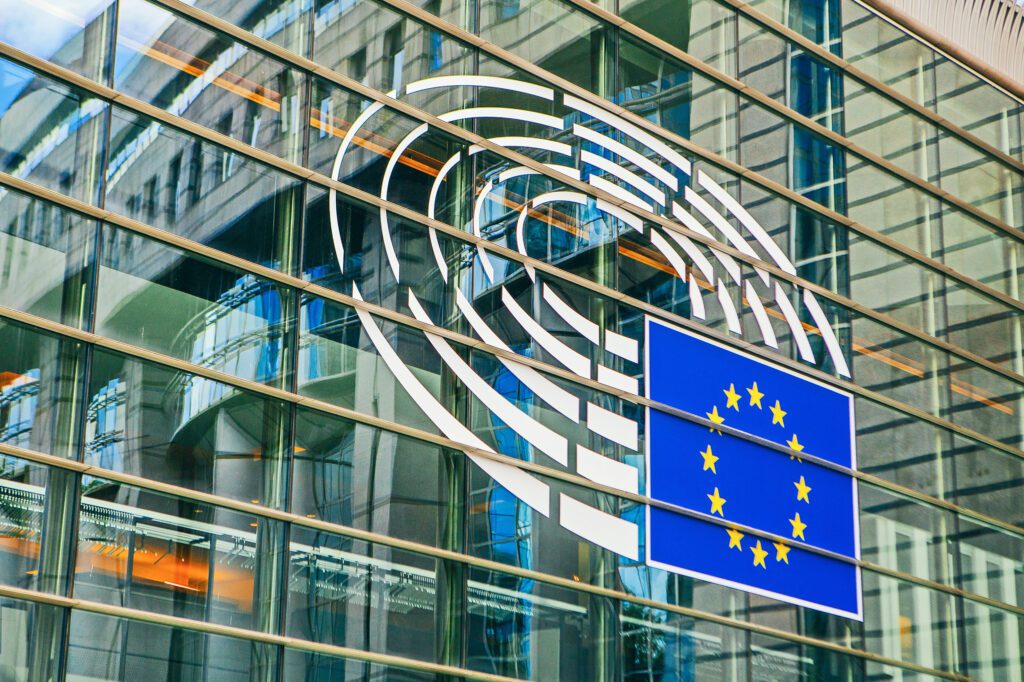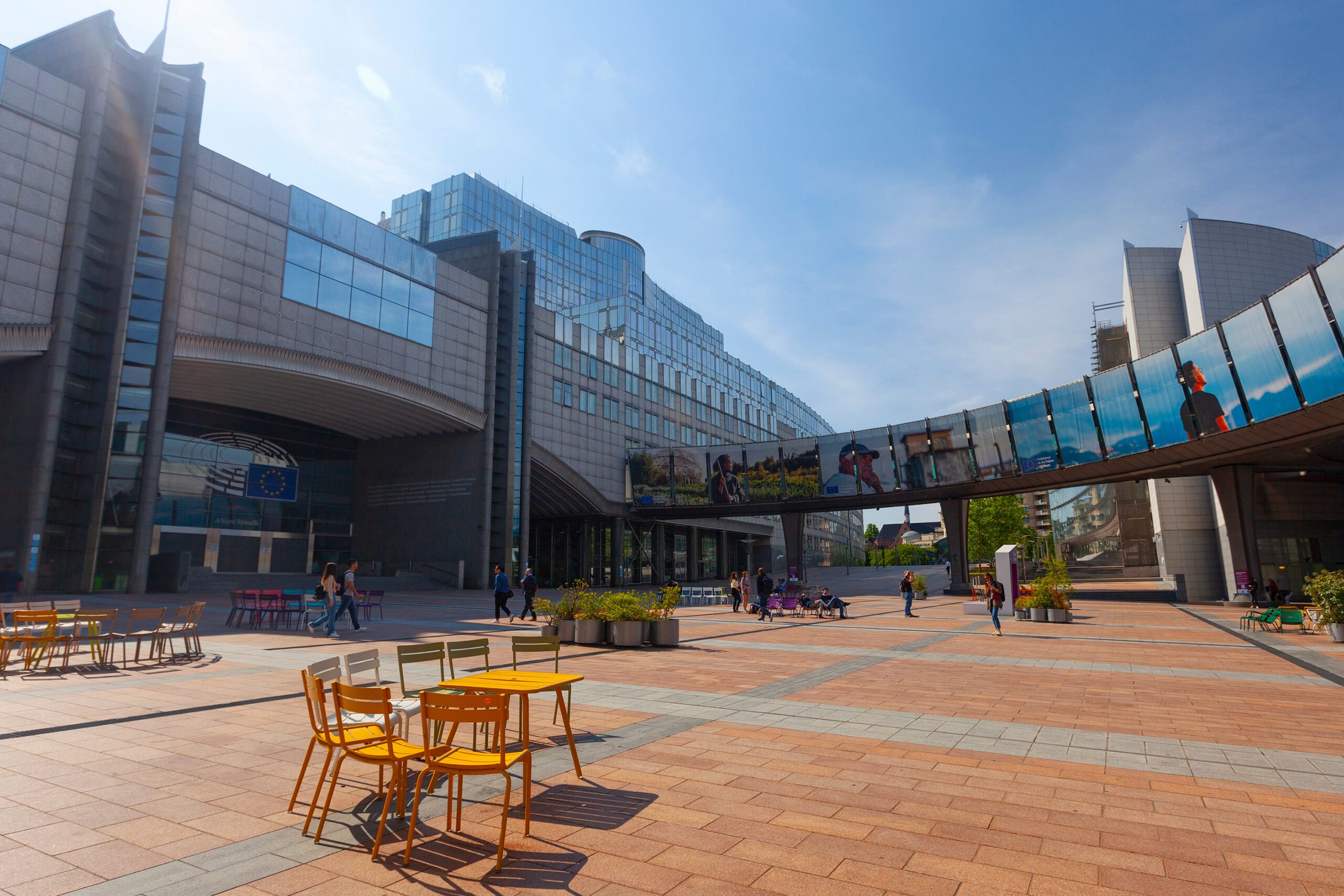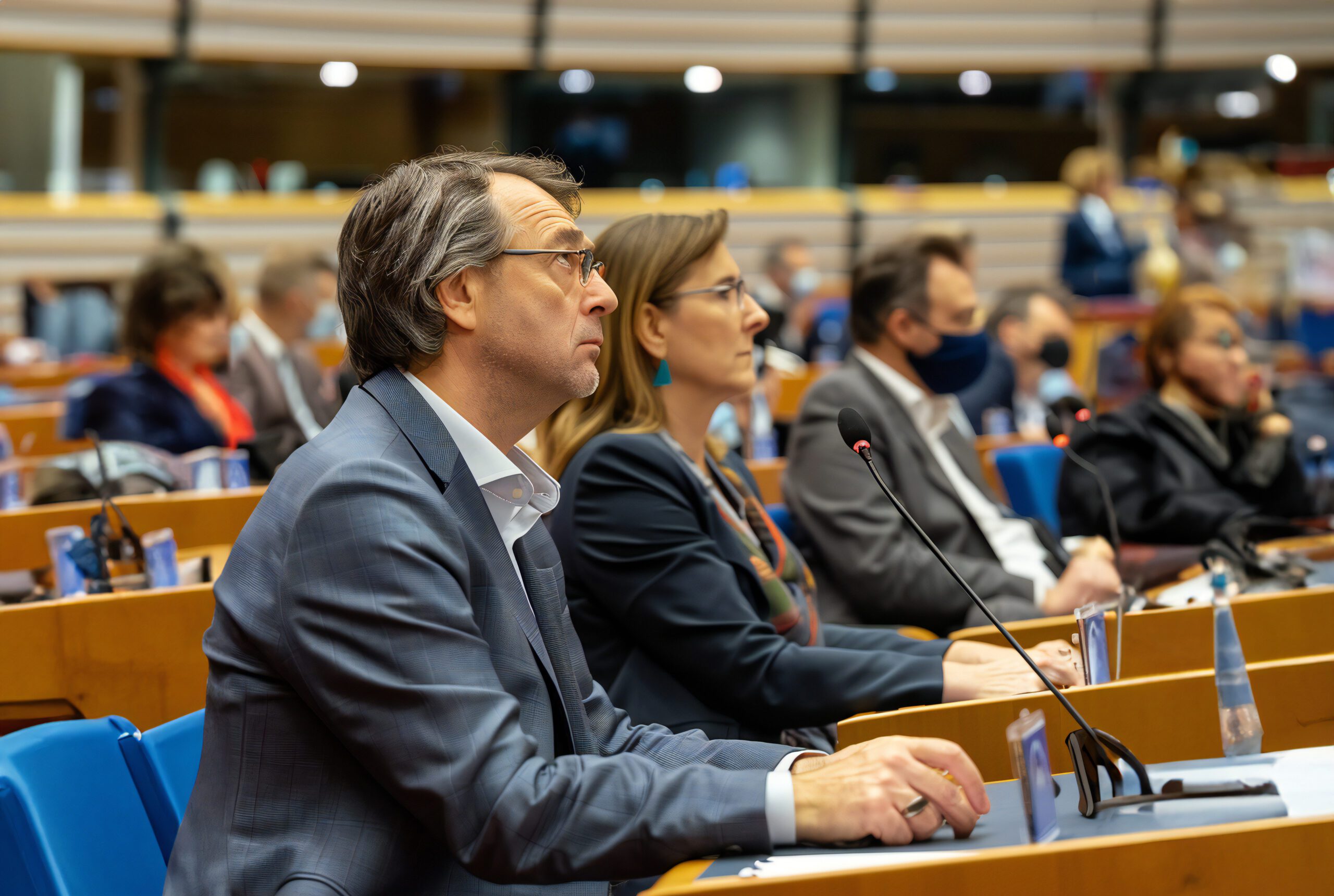The European Parliament must ensure that its internal practices mirror the values it so vocally defends on the global stage.

Since its founding, the European Parliament has consistently advocated for a more prominent role for social partners in shaping economic governance. MEPs have urged the European Commission and Member States to move beyond symbolic consultation and provide tangible support for authentic, structured social dialogue.
In a resolution[1] adopted in December 2021, the Parliament called on all stakeholders—including governments, employers, and trade unions—to commit to achieving 90% collective bargaining coverage across the EU by 2030. This ambitious target underscores the Parliament’s belief that social dialogue is not merely a procedural exercise, but a democratic imperative.
Over the years, Members of the European Parliament have stressed that meaningful dialogue between social partners is essential for crafting fair labour policies, managing workplace transitions, and ensuring that citizens have a genuine voice in decisions that shape their economic futures.
The Parliament welcomed the Council’s 2023 Recommendation[2] on strengthening social dialogue, which urges Member States to enhance collective bargaining frameworks, invest in capacity-building for social partners, and embed dialogue into national recovery and resilience strategies.
The Parliament’s position on social dialogue aligns with the European Commission’s 2024 Val Duchesse Declaration[3], which laid the groundwork for the signature in March 2025 of the Pact for European Social Dialogue[4].
For the Parliament, social dialogue does not seem to be a box-ticking exercise – but rather a democratic cornerstone, essential for shaping fair labour policies, managing transitions, and ensuring citizen participation in economic governance.
Yet this raises a pressing question: How well does the House of European Democracy uphold these principles within its own walls?
The answer is as stark as the reality it reflects. Despite its vocal advocacy, the Parliament itself, in its internal labour relations, falls short of the standards it champions. The contrast between rhetoric and practice invites scrutiny, and perhaps, a moment of introspection.
—
[1] European Parliament resolution of 16 December 2021 on Democracy at Work: A European Framework for Employees’ Participation Rights and the Revision of the European Works Council Directive (2021/2005(INI))
[2] Council Recommendation of 12 June 2023 on strengthening social dialogue in the European Union Published in the Official Journal of the European Union, C/2023/1389, on 6 December 2023
[3] Council Document ST 5687/24
[4] Joint Pact for European Social Dialogue signed on 5 March 2025

Social dialogue in the European Parliament as an employer, in practice, barely exists.
And that despite the commendable efforts by the current President Roberta Metsola – who relaunched the negotiations on a new framework agreement between the Institution and its trade unions, which resulted in the signature of a new text in September 2024 (the Framework Agreement) – and her genuine willingness to abide by its provisions. On one hand the Framework Agreement marks a historic shift: for the first time, representative trade unions were granted minimal human resources to support their work, on the other hand, it represents a major setback: it establishes a minimum threshold of a weighted tier for trade union representativity – measured by electoral results – as a prerequisite for initiating the so-called “concertation” process between trade unions and the Institution. Prior to the Agreement’s signature, any single trade union had the right to trigger this process, which allowed for more immediate and inclusive engagement.
The implementation of the Framework Agreement has proven even more difficult, raising questions about the administration’s willingness to translate political goodwill into operational change.
This is largely due to the substitution in the labour relations within the European Parliament of trade unions with the staff committee – a consultative body whose role is fundamentally different. The staff committee lacks binding authority, and its statutory functions do not include collective bargaining or formal negotiation.
In practice, proposals to amend the working conditions of European Parliament staff are routinely routed through the staff committee for consultation. Yet this process falls short of genuine social dialogue. No structured negotiation takes place, no meaningful exchange with representative trade unions is pursued. What remains is a procedural formality – consultation in name, exclusion in effect. As a result, the mechanisms for meaningful worker representation and structured dialogue are significantly weakened.
The bottleneck rests squarely with the multitude of trade unions operating within the European Parliament. Since the entry into force of the Framework Agreement, these fragmented groupings have consistently resisted efforts to initiate collective bargaining. Despite the agreement’s intent to strengthen social dialogue, internal opposition has stalled any meaningful progress – leaving the promise of negotiation unfulfilled.
Only Union Syndicale Parlement Européen (USPE) – member of Union Syndicale Fédérale and one other trade union PluraList have so far launched initiatives of collective bargaining under the new Framework Agreement. However, these two organisations fall short of the required weighted tier. All other trade unions are willingly giving up on their own competence by opposing those initiatives.
It is, indeed, a perplexing question: why would trade unions accept a weakened role in shaping institutional decisions on staff policy? The answer, though disheartening, is remarkably straightforward. The administration – clearly benefiting from this imbalance – has strategically directed generous resources toward the Staff Committee, while allocating only minimal support to the trade unions. This imbalance has disproportionately benefited the factions that have maintained a dominant alliance within the Staff Committee – an arrangement that has remained virtually unchanged for nearly six years. These groupings have actively withheld resources from the trade unions that are most outspoken on staff-related issues, undermining pluralism in representation.


Unlike the European Parliament’s political groups, which operate under clear rules for proportional resource allocation, its staff committee remains governed by no such framework. This has allowed smaller factions to band together and sideline larger, more representative trade unions – effectively denying them their fair share of office space, secondments, and mission budgets – the very resources, which make an organisation operational.
The result? A skewed system where influence is not earned through representation, but through tactical alliances. Those comfortably seated on the staff committee show little appetite for genuine social dialogue. Instead, they settle for a passive, consultative role of the Staff Committee – leaving the core principles of worker representation diluted and diminished.
The current arrangement is undeniably convenient for the Parliament’s administration, which can operate with near certainty that its staff-related proposals will not be effectively challenged. By continuing to favour the Staff Committee – both in visibility and resources – the administration ensures a passive consultative process while leaving trade unions sidelined.
Yet this situation is in sharp contrast with the letter and spirit of the Council recommendation of 2023 so eagerly welcomed by the Parliament, which requires that “the existence of elected worker representatives is not used to undermine the positions of the trade unions concerned or of their representatives”.
The consequences are tangible. Take USPE, the Parliament’s most representative trade union: despite the Framework Agreement having entered into force, we waited nearly a year to be granted office space in Brussels. In the meantime, our union representatives were forced to meet colleagues in corridors and draft documents on coffee tables in public areas – an indignity that speaks volumes about the institutional priorities.
The administration of the European Parliament has opted to engage exclusively with a carefully selected group of trade unions – notably excluding the most representative one. This selective approach is evident in the structure of regular meetings between the Staff Committee and the Directorate-General for Personnel (commonly referred to as the comité de contact), which are held only in the presence of trade unions handpicked by the Staff Committee’s Bureau. Curiously – or perhaps not – this same group of unions has consistently obstructed any proposals to initiate the concertation process, effectively stalling meaningful dialogue.
Representatives of the excluded trade unions do not sit on any internal or interinstitutional committees or bodies, and they are systematically denied presence on internal competitions juries, which effectively means that the latter are monopolized by the smaller groupings who have formed the majority at the Staff Committee.
As the European Parliament seeks to uphold its reputation as a global champion of social dialogue, pressing questions remain about how it can strengthen its credibility and commitment to democratic representation within its own house.

The groundwork for progress has already been laid. Under the leadership of President Metsola, a new framework agreement was successfully concluded – marking a significant step forward in the formal recognition of trade unions within the Parliament. While the agreement is not without flaws – particularly regarding the high threshold required to initiate a concertation process, a point strongly contested by USPE during negotiations – it nonetheless represents a meaningful advance.
Concrete steps must be taken to redress the imbalance between trade unions and the Staff Committee, whose dominance has steadily eroded the unions’ role in institutional dialogue.
It is now incumbent upon the administration to move beyond its stance of non-interference in staff committee affairs and take active responsibility for addressing undemocratic practices within this body. Concrete rules must be established to ensure that electoral outcomes – on which trade union representativity is based – are accurately reflected in the allocation of responsibilities and resources within the Staff Committee. Only then can trade unions operate with the legitimacy and capacity they require.
The persistent imbalance in staff representation and the marginalization of trade unions are not peripheral concerns – they strike at the heart of the Parliament’s identity and mission. Ensuring fair treatment and genuine engagement with staff representatives is essential to upholding the values the institution so vocally defends.
The European Parliament must ensure that its internal practices mirror the values it so vocally defends on the global stage. Its credibility as a champion of social dialogue

Urszula MOJKOWSKA
ABOUT THE AUTHOR
Urszula Mojkowska is the President of Union Syndicale Parlement Européen. She is a lawyer with experience in civil, labour, criminal and international law. An EU civil servant since 2004.